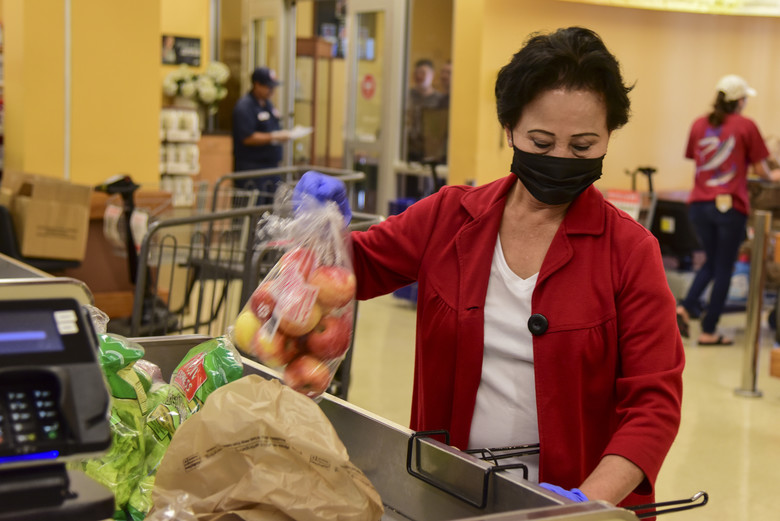While most Canadians were staying home, there are hundreds of thousands workers on the front lines who are keeping country running smoothly — and facing a greater risk of infection. Now that some provinces are opening up and people are being asked to return to work, many of us have questions about working safely during COVID-19. Here are answers to some frequently asked questions about protections available to workers now. We must support efforts to make sure these protections are stronger in the future.
Who is an essential worker?
Each province has defined differently who must report to work and which businesses must close.
- Alberta
- British Columbia
- Manitoba
- New Brunswick
- Newfoundland and Labrador
- Nova Scotia
- Northwest Territories
- Nunavut
- Ontario
- Prince Edward Island
- Quebec
- Saskatchewan
- Yukon
Are workers entitled to hazard pay?
Workers across Canada do not get hazard pay for working during the COVID-19 crisis which means that, for the most part, it is left up to employers. There are reports of employer increasing workers’ pay however, many workers are being asked to work more hours and do a lot more work during the crisis. Workers who are not being compensated for work they are doing should document all additional work and consult a legal clinic or workers’ advocacy centre near them.
What about childcare during this crisis for emergency workers?
Here is a province-by-province guide on childcare regulations and emergency childcare provisions for essential workers during the COVID-19 crisis.
Whose responsibility is it to provide personal protective equipment at the workplace?
All jurisdictions in Canada have the requirement for workers to use personal protective equipment (PPE) in good repair. However, the majority of provinces do not require employers to provide equipment without cost to the employee.
If my workplace is not safe, can I refuse to work?
Your employer should have a plan and equipment to keep you safe during the COVID-19 outbreak. All workers in Canada have a right to a working environment that protects their health and safety. All workers have the right to refuse unsafe work, however, the specific language used to trigger a right to refuse unsafe work varies based on jurisdiction in Canada.
Generally the first step is to let your employer know (either as a group of employees or individually) that you believe the work is unsafe. Then if your employer has not fixed the problem, you can contact the appropriate health and safety officers who regulate your work (provincial or federal, depending on what you do). According to advice given in a webinar by $15 and Fairness Ontario on workers rights during the COVID-19 outbreak, consult your local provider of legal aid to get support and to ensure that you are protected when you refuse to work. A worker who exercises a right of refusal must still be paid until the situation is resolved with the employer, or until the health and safety authority renders a decision. You must generally remain available to perform alternative duties which may be assigned by the employer in the interim. If your employer asks another worker to perform the work which was refused, the employer must inform the replacement worker of your refusal and the grounds for refusing it. The alternative worker will then have the right to accept or refuse the work.
How can I help?
- LeadNow is working with workers rights advocates to demand a $4-per-hour increase for all essential workers making less than $49,999 per year. Sign the petition.
- It is important that we fight for improved protections for workers right now so reach out to workers advocacy organizations in your community if you need advice or want to work with others to support workers. We must demand that all essential workers are protected by employer paid PPE during this crisis and afterwards. Learn about and join the efforts of unions across Canada to demand protections for industries they represent.
- Women, girls and gender-diverse people will be disproportionately impacted by COVID-19. In crises, existing inequalities will be amplified. YWCA Canada is already seeing an increased need to address gender-based violence, improve access to economic security and invest in essential services, and is advocating for a feminist approach to COVID-19. SIGN THE YWCA PETITION HERE.
Image: US Air Force




